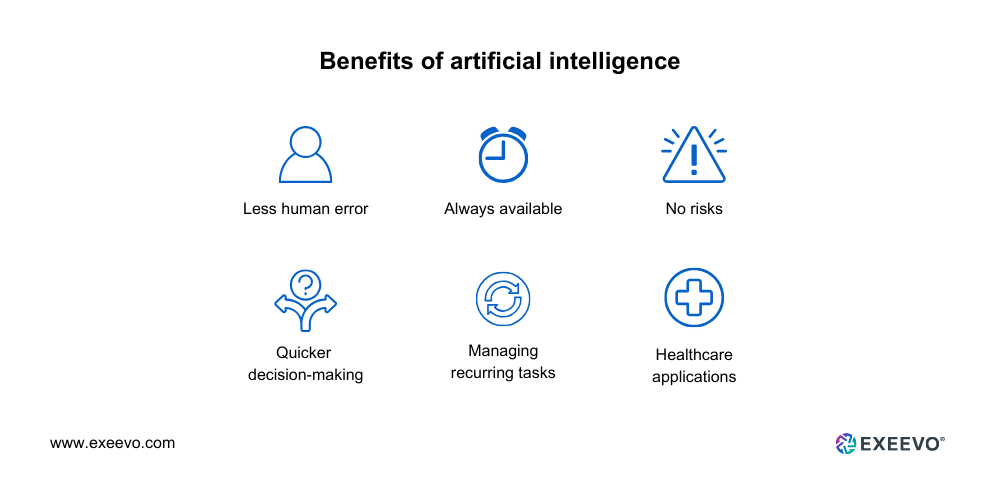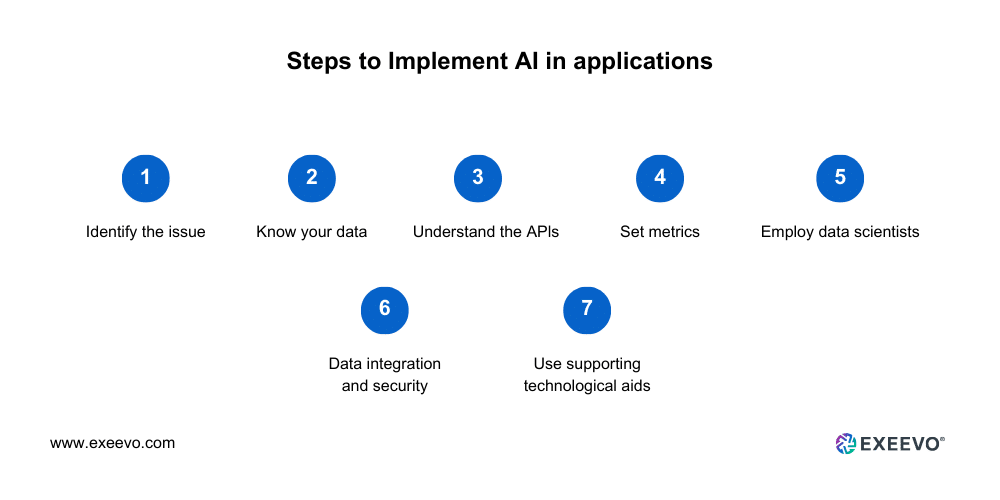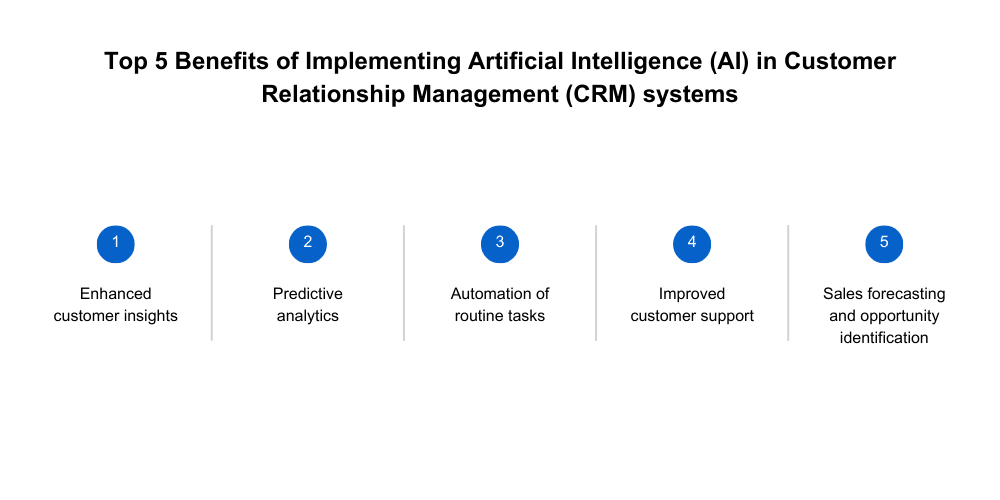AI has become a transformative tool across a wide range of industries.
Now, it is refining how Pharma businesses operate and engage with their customers.
Forecasts show the pharmaceutical sector will witness a generative AI market surge to a valuation of over $2.25 billion by 2023. That’s a significant uptick from its $159.9 million valuation in 2022.
The technology promises to take CRM to new heights. Pharma CRM focuses on maintaining and enhancing relationships with healthcare professionals and customers. From intelligent chatbots to improved management of resources and the integration of voice technology, generative AI can offer unprecedented efficiency and innovation. With its power to analyze and learn from data at an exceptional pace, it stands as a pillar for future advancements in the sector.
In this article, we’ll explore the potential of generative AI in reshaping the Pharma CRM space and how it brings efficiency to this industry.
Generative AI and Pharma CRM
The pharma industry leans on CRM to encourage connections and maintain client relationships. CRM platforms help pharmaceutical companies engage with customers while facing challenges like sustaining personalized interactions.
According to a recent poll conducted during a Gartner webinar, 38% viewed customer experience and retention as the main focus of their investments in generative AI.
Generative AI serves as a catalyst for innovation in this field. It can direct CRM toward a horizon of personalized and instinctive engagements. This technology leverages AI to create content, get insights, and furnish recommendations. It can offer tailor-made solutions to revolutionize the approach to customer interactions.
Building on this, Chris Wade of Exeevo and George Corugedo from Microsoft discussed Microsoft’s foresighted investments in generative AI to reshape business tool use.
Built on the robust Microsoft 360 ecosystem, Exeevo stands at the edge of this revolution, integrating with tools like 365 Copilot. It promises to be a versatile tool for understanding individual user data and circumstances. Be it drafting texts in Word or generating insightful reports in Excel, Copilot makes it effortless. Moreover, when paired with 365 Dynamics, it transforms into a potent ally.
The Impact of Generative AI on Pharma CRM
Generative AI can take competition to new heights with new and improved interaction methods. Pharma firms adopting this technology can gain a significant advantage. With this technology, they can create smart strategies that better align with customer needs.
Here are some ways Generative AI elevates the CRM space:
- Personalized targeted marketing: Companies can leverage AI-driven recommendations to create campaigns that hit the mark every time. It can lead to enhanced customer retention.
- Informed decisions: AI-generated insights pave the way for decisions rooted in data that help improve customer experiences.
- Efficiency: Generative AI streamlines operations and slashes the time needed to analyze customer data. Thus, it ramps up efficiency.
Drawing from Life Sciences, it is clear that AI breathes life into the customer experience by personalizing it to a groundbreaking degree. We then get a comprehensive and customizable customer journey as a result. It helps expand reach while maintaining a personal touch.

Incorporating Generative AI into Pharma CRM
Pharma companies stand on the edge of a transformative era as they consider incorporating generative AI into CRM systems. But, this integration process must prioritize ethical use and ensure data privacy. Addressing potential challenges to leverage the best outcomes from AI-driven pharma CRMs is essential.
A McKinsey study predicts that generative AI could contribute $2.6 to $4.4 trillion annually in the 63 use cases examined.
Omnipresence CRM Marketing Automation, powered by Microsoft Dynamics 365®, promises a futuristic solution that emphasizes creating value-driven customer experiences. The approach involves a series of well-planned steps, from data preparation and model training to integrating it with existing tools.
When you consider incorporating generative AI into Pharma CRM, you must follow a sequence of steps. Here’s a breakdown to create a robust system with personalized, value-driven customer experiences:

1. Data Integration and Preprocessing
Data integration and preprocessing are fundamental to integrating varied information. It includes customer details, interaction logs, and product data for a system that can self-learn and evolve.
Why is it so crucial? The truth is that quality data forms the bedrock of accurate AI models. It prevents missteps in insights or recommendations. Understanding and mastering data integration thus become pivotal.
According to McKinsey, many firms need help with outdated technology and disjointed communications. It leads to frustrating experiences for healthcare providers and patients.
A clear direction is needed, moving from patchy infrastructures to harmonized systems prioritizing data accuracy and intelligence.
Addressing data silos and emphasizing data cleansing and management enables pharmaceutical companies to exploit the potential of generative AI in CRM. The result is smoother operations and improved customer relations based on reliable, unified data.
2. Model Selection and Customization
Selecting the right generative AI model is a critical decision to propel pharma CRM into a new era of excellence and innovation. The perfect model understands the distinct language and customer behaviors unique to the pharma industry.
Six out of ten industry insiders confirm that leveraging AI enhances quality control.
The solution lies in customization. It means training the AI using data specific to the industry to guarantee outputs that hit the mark every time. A tool that evolves, learns, and adapts will cater to changing customer preferences.
AI requires regular fine-tuning. This ongoing fine-tuning guarantees that AI maintains its effectiveness within the CRM toolkit. It adapts to market shifts and evolving customer trends, delivering value. Throughout the process, it cultivates and strengthens enduring relationships.
With the right setup, pharma companies can enter a new era of customer relations. It ensures every interaction is informed, intentional, and tuned to meet customer needs.
3. Real-Time Insights and Recommendations
Delivering real-time insights holds immense value. It lets businesses tailor interactions that can enhance customer experiences. Such instantaneous data-driven recommendations can drive engagement and ensure decisions are timely and accurate.
With the power of real-time insights, businesses can;
- Respond to customer needs,
- Anticipate their desires,
- Create a more interactive and personalized interaction.
A survey indicated that leveraging digital technology could be the key to deepening understanding of customers and enhancing relationships with them.
Exeevo designed Omnipresence 9.0 to revolutionize how the medical device sector interacts with its clientele. This platform is a testament to the power of AI in pharma CRM. Developed in collaboration with a leading global medical device organization, Exeevo Omnipresence ensures teams can identify leads, expedite product knowledge dissemination, and cultivate product advocacy.
4. HumanAI Collaboration
Generative AI shows one of the biggest strides in human-AI collaboration. The platform garnered an impressive 100 million active users in just two months.
This collaboration creates a balance between AI automation and human expertise. The primary goal of this collaboration is to enhance the efficiency of humans while maintaining quality while being compliant with necessary regulations.
This approach promises a future where technology meets reliability and crafts a trusted, efficient CRM.
The Benefits of Generative AI in Pharma CRM
Forecasts suggest that healthcare will witness the swiftest adoption of generative AI, with a compound annual growth rate of 85% until 2027. This growth will propel the market value to a staggering $22 billion.
CRM is at the heart of successful business operations, and generative AI offers transformative benefits in this area.
As a result, pharma companies can offer proactive recommendations tailored to individual customers. Moreover, these AI-driven insights equip businesses to adapt and refine strategies. The future of pharma CRM, enriched by generative AI, signifies a shift towards smarter, more responsive customer engagement.
Let’s explore the benefits of incorporating generative AI in pharma CRM:

1. Personalized Customer Interactions
Personalized customer interactions are central to refining the pharma CRM sphere. Generative AI facilitates such personalization. It helps shape content, messages, and recommendations to resonate with individual customers. It focuses on creating a connection—a bond that speaks to the customer.
Leading voices in the industry, like Johanna Willer from Eli Lilly, emphasize the powerful role of data and analytics in shaping omnichannel strategies for personalized customer journeys. Once integrated into customer service operations, generative AI can boost productivity by 30% to 50%.
Fabio Del Taglia and Bertrand Bodson spotlight the digital strides in offering enriched customer experiences. This includes in-depth analysis of customer insights and massive technological investments for personalizing medicine.
This collaboration with AI creates opportunities for engagement and meaningful, fruitful connections.
2. Enhanced Data Insights
Generative AI has the capability to run through vast amounts of data to find useful patterns and trends. This technology can highlight important correlations that may not be evident otherwise. Enhanced data insights can improve your business decisions in the pharma CRM space.
The integration of generative AI can elevate the efficacy of all decision-making processes. This leads to a more comprehensive understanding of market dynamics and customer inclinations. It provides a strong basis for shaping informed strategies in the competitive pharmaceutical industry.
3. Predictive Analytics
Predictive analytics is a tool that forecasts future trends based on past data. In the context of pharma CRM, it helps understand and predict customer behaviors.
Generative AI can also analyze this past data to identify patterns and trends. It scrutinizes past interactions, purchases, and preferences to discern valuable insights. These insights enable businesses to anticipate customer needs and market shifts. Armed with this foresight, companies can:
- Proactively tailor their strategies,
- Optimize resource allocation,
- Enhance customer experiences,
- Stay ahead of their competition.
4. Efficient Content Generation
82% of marketers perceive the quality of AI-generated content to be on par with that of humans. Two-thirds of marketers using AI report a considerable improvement in their content creation workflows.
Generative AI is changing the way we create diverse content. It can automate the creation of emails, reports, and product descriptions. This tool streamlines the process as it maintains high quality and consistency.
The technology relies on machine learning and large datasets. It crafts content that matches brand guidelines and audience expectations. Businesses can save time and resources while keeping their content compelling and on-brand. It’s a tool that is ready to engage audiences on different platforms.
5. Optimized Customer Engagement
Embracing optimized customer engagement revolutionizes pharma CRM strategies. It steers pharma companies towards a future where digital avenues take center stage in HCP marketing. However, this growth hinges on interactive media and telehealth to encourage deep connections with HCPs.
Generative AI further elevates this strategy by:
- Creating personalized content,
- Offering targeted recommendations that nurture satisfaction and foster loyalty.
Key to this approach is the actionable insight derived from KPIs, which encompass conversion rates and feedback analysis. It empowers businesses to fine-tune their strategies.
The Promise Of AI
Generative AI holds a promising future in pharmaceutical CRM. It offers capabilities far beyond traditional methods. Its transformative potential lies in the following:
- Enhancing customer experiences,
- Creating tailored interactions,
- Driving more meaningful engagements.
The transition of Omnipresence Technologies to Exeevo shows the strong dedication to maximizing how we leverage AI in CRMs. Exeevo uses the capabilities of Microsoft’s cloud to tailor customer and patient journeys for superior health experiences.
Our recent initiatives show a promising path for taking the next stride in digital evolution and personalized healthcare experiences. We launch different solutions to enhance customer experience management and patient engagement.
If you’re interested in exploring more about this emerging technology, then check out these resources below:
- The State of AI in 2023: Generative AI’s Breakout Year | McKinsey
- Artificial Intelligence in Customer Relationship Management: Literature Review and Future Research Directions | Emerald Insight
The rapid advancements we’ve seen so far leave us with a question: What milestones can we expect with the power of generative AI and pharmaceutical CRM in the coming years?
Stay tuned as Exeevo leads the way and steers towards a future rich with potential and shaped by revolutionary AI technology.
